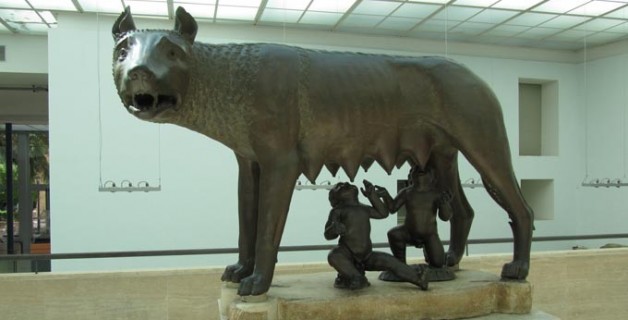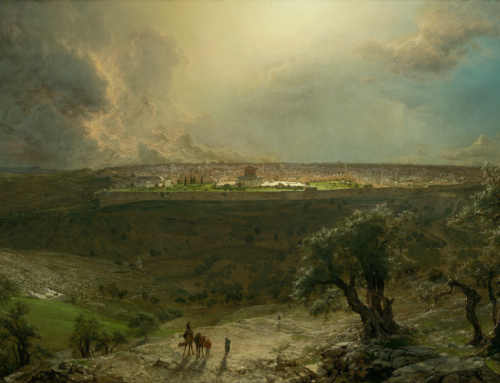All paganism ends in despair. Even the greatest pagan epic, Virgil’s Æneid, concludes its grand narrative of the founding of Rome with the inevitable descent into despair. The poem follows Aeneas’ escape from fallen Troy, his heroic journey to Italy, and his role in the founding of the Roman people. Aeneas is the perfect Roman: he gives up everything for the greater good of his family and nation. He carries his father out of burning Troy, taking with him his household gods. When at Carthage he falls in love with the queen Dido, he again places family and nation first and leaves her in order to establish Rome’s future. Dido, despondent, burns herself alive. No matter the cost, Aeneas is faithful.
But for what? < –more–>Rome is founded, but he is lost. The poem ends in this despair: Rome’s future is assured, but Aeneas has no salvation. The epic ends not with the glorious founding of Rome, but with Aeneas stuck in an impossibly ambiguous situation. Before him lies Turnus, a noble man worthy of respect, but also Aeneas’ adversary. Turnus had earlier killed Aeneas’ friend, and taken his belt; Aeneas swore to avenge his friend. With Turnus helpless before him, Aeneas has every reason to have mercy, but then he sees his slain friend’s belt now worn by Turnus. Aeneas should both spare and kill Turnus. Aeneas screams in anger, and runs his sword through noble Turnus’ breast, sending him to the depths below. The poem thus ends not with a glorious victory, a triumphant Aeneas, but with the vengeful slaying of an otherwise noble man. For Aeneas no peaceful Elysium awaits. He gave up everything for Rome, but in the end he is left with only his anger and the death he has dealt.
And so too all paganism ends in despair. Paganism is based on the works of man, for pagan idols are naught but the work of human hands. The Æneid follows the struggle of a noble man seeking to do what is right and to create a better world, for him the Roman Empire (Virgil writes at the start of the Pax Romana). But the achievements of man cannot save him—even the mighty Roman Empire collapsed. Having given up everything for the works of man, Aeneas finds that he has nothing, for in the end all things human pass away and are nothing. Aeneas was the perfection of Roman virtue and pagan piety, but that did not save him. Paganism will always end thusly—pagan gods cannot save.
And so too the modern world despairs, for it too is founded on the works of human hands. Modern attempts to build salvation have failed just as surely as the Roman Empire has fallen. The city of man is still unable to offer the salvation given by God. Modern man no longer trusts in God, but instead in his own works: technology, endless entertainment, science, politics, mother earth, and a legion more—a vast modern pantheon of gods that can only offer the pagans’ despair. If even noble and virtuous Aeneas ended in despair, then no modern pagan, however self-actualized or liberated, can hope for anything but that same fate.
What the modern world needs is the true God who offers true salvation. Until modern man looks beyond himself and his works, his lot will be despair. The true happiness that man longs for, salvation itself, is the only thing that can provide us with true hope. Aeneas’ gods were the works of human hands—are ours as well?
✠
Image: Capitoline Wolf, with Romulus and Remus







